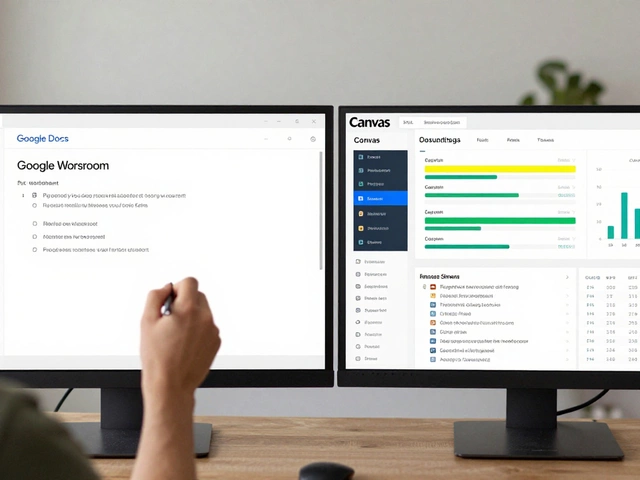Most people assume passing the bar is brutally hard no matter where you take it, but here’s the shocker: some states turn the pressure up to eleven. If you just finished three grueling years of law school, the next hurdle—the bar exam—can look a lot tougher depending on your zip code. Not every state plays by the same rules. Bar exams change everything from test format and length to the passing score and even what law you have to learn.
Some states have horror-show pass rates, while others just throw tricky questions and obscure state laws your way. Think you’re up for the challenge? Knowing what you’re dealing with and why it’s so hard can help you dodge surprises and plan your approach from day one. Whether you’re picking your state for practical reasons or just want the bragging rights, this stuff matters if you want those letters after your name.
- Why State Bar Exams Differ So Much
- The Brutal Reality: Which State Tops the List?
- What Makes a State Bar Exam Truly Difficult?
- Real Stories: Lawyers Who Faced the Toughest
- Tips for Surviving the Hardest Bar
- Should You Even Try for the Hardest State?
Why State Bar Exams Differ So Much
If you ever wondered why you hear so many horror stories from bar takers in some states but not others, there’s a reason. Each state runs its own show when it comes to the bar. There’s no national bar test (except in a narrow sense—the Uniform Bar Exam is gaining ground, but even that isn’t everywhere). States set their own laws, grading rules, cutoff scores, and even the topics on the test.
For example, California’s bar is famous for being long, with three days of testing until recently (now it’s two), and it has tons of state-specific law mixed in. Compare that to Wisconsin, which lets local law grads skip the test altogether under what's called "diploma privilege." New York and Texas adopted the Uniform Bar Exam, but their pass rates still vary thanks to grading differences and local law sections.
Here’s why bar exams aren’t one-size-fits-all:
- Hardest bar exam status comes from low pass rates, tough questions, and crazy-long essay sections in states like California and Delaware.
- Pass scores (the minimum score to pass) change a lot. For instance, California’s pass line is one of the highest. In some states, just a handful more right answers gets you over the line.
- Subject matter: Some states are heavy on their own weird rules—think property law in Texas or community property in California. If you haven’t studied for those, it’s game over.
- Length: Most states do two days, but places like California used to be a three-day saga. Imagine staying sharp that long with stakes this high.
- Who’s allowed to take the exam at all can vary—some states don’t let foreign-trained lawyers sit, others do.
So the rules change depending on where you’re headed. If you pick a state just for the weather or the lifestyle, double-check what you’re signing up for. The difference in requirements will hit you harder than you think.
The Brutal Reality: Which State Tops the List?
If you ask anyone who’s been through it, California’s bar exam is the one that keeps people up at night. It’s not just an urban legend—California isn’t just tough, it’s downright ruthless for would-be lawyers. The pass rates don’t lie. In July 2024, less than 50% of test takers passed in California. That means most people end up taking it at least twice, and some just walk away for good.
This isn’t just about the numbers. The California bar is long—two days of essays, multiple-choice questions (the MBE part), and a performance test that throws you curveballs you probably never saw in law school. Then there’s the state’s own laws to memorize. Even if you scored high everywhere else, that doesn’t save you here.
Now, New York and Florida also make life hard for law grads, but if you look at the lowest pass rates, highest stress levels, and war stories from test-takers, California still sits on top. Most folks agree it’s the hardest bar exam around.
Here’s how the numbers stacked up in July 2024 for first-time test takers in several tough states:
| State | Pass Rate (%) | Days of Exam |
|---|---|---|
| California | 47.1 | 2 |
| Florida | 54.7 | 2 |
| New York | 69.0 | 2 |
| Texas | 75.5 | 2 |
| Louisiana | 55.8 | 3 |
Louisiana deserves a quick mention because it’s the only one testing civil law, not just common law, and its bar is three whole days. But California is still famous for chewing people up and spitting them out with the lowest pass rate, year after year. That’s why so many people look for advice—and sometimes, for an easier state.
What Makes a State Bar Exam Truly Difficult?
You might think all bar exams are basically the same, but believe me, there’s a huge gap between the easiest and the hardest. What actually makes a state bar exam so tough? It’s a mix of pass rates, weird question styles, massive topics, extra local law, and even retake limits.
- Pass rate: This can be a huge deal. For example, California’s overall bar pass rate in July 2024 was just 43%. New York, not exactly a breeze, hovers around 61%.
- Test format: Some states have two days of essays, others add on a third day packed with trickier stuff like performance tests or extra state-specific questions. California’s test runs for two days and is known for its monster essays and intense performance tests.
- Content scope: In some places, you have to cram state-specific laws that aren’t even covered by the national Uniform Bar Exam (UBE). Louisiana, for example, uses a weird system based on French law, making it a total curveball for most American students.
- Retake restrictions: A few states actually limit how many times you can try. South Carolina and Kansas will cut you off after three failed attempts unless you get special permission.
- Application process: Some states add more stress with background checks, interviews, and heavy paperwork before you even see the exam.
Curious how these differences stack up? Here’s a quick look at some notorious states for the hardest bar exam:
| State | 2024 Pass Rate | Exam Format | Retake Limit |
|---|---|---|---|
| California | 43% | 2 days - Essays, PT, MBE | None |
| Louisiana | 45% | 3 days - Code Law | None |
| New York | 61% | 2 days - UBE | None |
| South Carolina | 59% | 2 days - Essays, MBE | 3 tries limit |
| Alabama | 53% | 2 days - UBE | 6 tries limit |
All these factors combine to make the bar experience in each state feel totally different. If you’re eyeing a tough state, reality is you’ll need much more than just basic test prep. It’s about knowing what you’re walking into and playing smart.

Real Stories: Lawyers Who Faced the Toughest
Ask any lawyer who survived the California or New York bar, and you’ll usually get a head shake and a story. These states have a rep for being the hardest—California especially, with a pass rate that sometimes hovers around 40%. And that’s for first-time takers. In July 2024, only 43% of test-takers in California passed. Compare that to states like Wisconsin, where some law grads skip the bar altogether if they study in-state.
But numbers are just one piece of the story. Take Alex, a UCLA law grad, who described the California bar as “cramming for three months straight, then realizing on day one you barely scratched the surface.” He failed his first attempt, worked as a paralegal, then passed on his second try. Stories like his are everywhere. In New York, Emily, a Fordham grad, said, "You study federal law, then slam into weird state-specific rules. It’s a maze.” Texas, another tough state, switched to the Uniform Bar Exam (UBE), but still demands a deep dive into local criminal law. Texas test-takers reported that the local law essays added a curveball they weren’t expecting.
Here’s a quick look at recent pass rates for some of the most notorious state bar exams:
| State | Pass Rate (July 2024) | Notable Challenges |
|---|---|---|
| California | 43% | Longest exam, tough grading, high cut score |
| New York | 66% | State-specific rules, lots of foreign-trained applicants |
| Texas | 71% | Local law essays, complex testing format |
| Florida | 60% | State-specific law, tricky ethics questions |
The real struggle? Most lawyers agree it’s less about memorizing laws and more about managing mental burnout. Sitting through two or even three straight days of testing, answering essay after essay, and wrestling with multiple-choice questions isn’t just a test of law—it’s a test of nerves. That’s the everyday reality behind the hardest bar exam stories.
- Want to survive? Build a study plan, use lots of actual past questions, and take care of your mental health.
- Find someone who’s been through your state’s exam and get the inside scoop on what tripped them up.
- Don’t just cram the material—practice writing, time management, and stress-busting tricks.
If you ever start to doubt yourself, remember countless real lawyers failed the hardest bar exams but went on to have strong careers. The struggle makes for good war stories—and for serious bragging rights.
Tips for Surviving the Hardest Bar
So, you’re about to tackle the hardest bar exam in the country. You’ve probably heard horror stories—endless outlines, 12-hour study days, memorizing thousands of rules. Here’s some good news: you can boost your odds with the right strategy, not just brute force.
Start early. Seriously, people who pass don’t treat this exam like a last-minute cram session. The National Conference of Bar Examiners actually found that candidates who studied steadily for 8-10 weeks (200-400 hours) had notably higher pass rates. That’s a lot, but it’s what works in states like California and Delaware, where pass rates sometimes dip below 50%.
- Mix up your study methods. Reading outlines isn’t enough. Use practice essays, multiple-choice questions, and mnemonics. The Barbri, Kaplan, and AdaptiBar platforms all offer thousands of real released MBE questions.
- Don’t skip state-specific rules. California’s Professional Responsibility and Performance Test trips up even the smartest students from out of state. Missing those details sinks a lot of dreams.
- Practice speed. The hardest state bars don’t just test what you know—they test how fast you write and think. For example, the California bar crams five essays and a performance test into one day; Delaware is famous for three-day sessions. Use a timer from the start when practicing essays and multiple-choice.
- Test yourself cold—no notes or books. On exam day, no cheat sheets allowed. Train like it’s the real deal by taking full-length practice exams under timed, closed book conditions.
Make a study calendar and stick to it, with built-in days off. Burnout kills focus. Most prep programs recommend one full day off per week. If you’re working or have a family, build your study plan around your real life, not someone else’s fantasy schedule.
Drill weak spots. Lots of people bomb the Multistate Bar Exam (MBE) portion, even if their essays are solid. Track your scores by topic so you know if you’re always missing Con Law or Evidence questions. Apps like UWorld and Quimbee have analytics for this.
| State | 2024 Pass Rate | Exam Length | Notable Challenge |
|---|---|---|---|
| California | 42.5% | 2 days | Performance test, essays, tough curve |
| Delaware | 45.9% | 3 days | Local law, multiple essays, oral exam |
| Arkansas | 55.3% | 2 days | Strict passing score, local content |
Remember, nobody cares how you do on the first practice set. It’s the learning curve that counts. The real win is getting to test day healthy, clear-headed, and able to write under pressure. Find a study buddy or join a group online. You’ll pick up tips and motivation from people who are living the same stress.
Should You Even Try for the Hardest State?
If you’re eyeing the hardest bar exam in the country—California—let’s be real: it’s intense, but it’s not impossible. Why do people even line up for a challenge this big? A California law license lets you work in one of the largest economies in the world. The legal scene is huge, with big firms, Hollywood, tech, startups—you name it. But the pass rate? Less than 43% of test-takers made the cut in July 2024, which is way lower than most places.
It’s not all pain and suffering, though. There are some clear pros if you go for it:
- You’ll have bragging rights most lawyers respect nationwide.
- There’s a wider job market, especially if you’re planning to move or work remotely for California clients.
- Once you pass the hardest, adding other states through reciprocity or the Uniform Bar Exam (UBE) can feel like a walk in the park.
But don’t sugarcoat this. Here’s how California stacks up next to a few other tough states, using actual bar pass rates from 2024:
| State | July 2024 Pass Rate | Exam Format |
|---|---|---|
| California | 42.6% | 3 days, California-specific & MBE |
| Arkansas | 54.1% | UBE, 2 days |
| New York | 62.5% | UBE, 2 days |
| Texas | 66.7% | UBE, 2 days |
So, should you chase the hardest? Before you decide, ask yourself:
- Is your dream job or target clients based there?
- Do you thrive under pressure and like tough competition?
- Are you ready to double down on study time, because average prep for California is about 400+ hours?
- Can you handle a possible retake? Most people don’t pass the first time.
Bottom line—don’t pick a state just because it’s known for being hard. If it fits your goals and opens the most doors, then grit your teeth and go for it. But if you’re just in it for the challenge and don’t care about actually living or working there, it might not be worth the grind.






